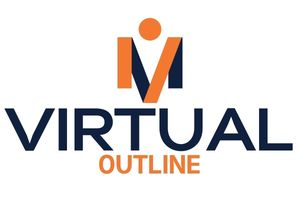Enhanced Security and Restricted Access: The Key Benefits of Modern Access Control Systems
In today’s digital and interconnected world, security is a growing concern for businesses, institutions, and even residential spaces. Protecting sensitive information, valuable assets, and ensuring the safety of individuals are essential responsibilities that cannot be compromised. This is where modern access control systems come into play. These advanced systems offer a variety of benefits, ensuring that only authorized personnel can access certain areas, thus enhancing overall security and reducing the risk of unauthorized entry.
1. Improved Security and Protection
The primary advantage of modern access control systems is the enhanced security they provide. By controlling and monitoring access to restricted areas, businesses can effectively prevent unauthorized individuals from entering high-risk zones, such as server rooms, laboratories, or storage facilities. These systems can integrate with biometric, card-based, or even mobile credentials to grant access, making it more difficult for potential intruders to bypass security measures. Unlike traditional keys, access control systems can be easily updated or revoked, offering real-time management of access privileges.
2. Reduced Risk of Human Error
Traditional methods of securing entrances, such as locks and keys, are vulnerable to human error. Lost keys or misplaced cards can lead to potential security breaches. In contrast, modern access control systems are less prone to such issues. These systems automatically log every access attempt, providing an audit trail that can be reviewed in case of suspicious activity. The ability to track who enters and exits specific areas provides an extra layer of security and accountability.
3. Remote Management and Monitoring
One of the significant benefits of modern access control systems is the ability to manage and monitor access remotely. Administrators can control who enters certain areas, adjust permissions, and even unlock doors from anywhere using centralized software. This is particularly useful for large organizations or properties with multiple locations, as it allows for streamlined security management. In case of an emergency, administrators can quickly restrict access or lock down areas to prevent unauthorized entry.
4. Customizable Access Permissions
Access control systems allow businesses to tailor permissions based on specific roles or needs. For example, a manager may be granted access to multiple areas, while a contractor may only have access to a limited section of the building. This granular control over who can access what, and when, minimizes the risk of unnecessary exposure to sensitive areas. In the event of employee turnover, access can be easily revoked, ensuring that former employees cannot gain entry to secure areas after they’ve left the organization.
5. Scalability and Integration
Modern access control systems are highly scalable, making them suitable for businesses of all sizes, from small enterprises to large corporations. These systems can grow with the organization’s needs, allowing for the addition of new entry points or locations. Furthermore, they can be integrated with other security systems, such as video surveillance, alarm systems, and fire safety protocols. The ability to centralize various security measures in a single platform enhances efficiency and provides a more comprehensive approach to safeguarding the premises.
6. Enhancing Safety and Efficiency
Besides security, modern access control systems also promote safety and operational efficiency. For instance, in case of emergencies, such as fire or medical crises, access control systems can automatically unlock doors or provide safe passage, allowing first responders to quickly assist those in need. Moreover, the use of digital access methods eliminates the need for physical keys, reducing the risk of key duplication and unauthorized sharing.
Conclusion
Incorporating a modern access control system offers an array of benefits that contribute to the overall safety, security, and efficiency of any organization. From enhancing protection against unauthorized access to improving operational workflows, these systems provide a reliable, scalable, and customizable solution to meet diverse security needs. As technology continues to evolve, access control systems are poised to play an even greater role in ensuring safety and security for businesses, institutions, and individuals alike.







